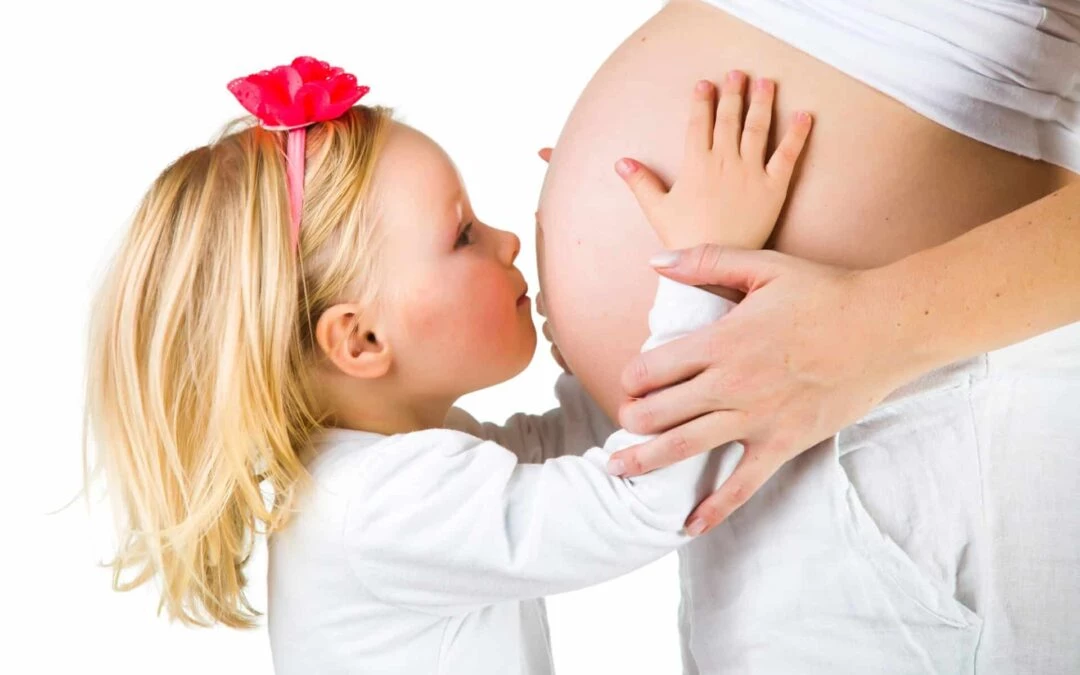Becoming a new mother is a wonderfully joyous and unforgettable time in your life. However, your body goes through rapid changes during pregnancy, and sometimes the inevitable structural and hormonal shifts can cause uncomfortable, annoying and even alarming symptoms. In most cases, there’s no need to panic. Virtually every expectant mother will experience unwanted effects at some stage of her pregnancy, but they’re usually not serious. Here are a few pregnancy-related problems you may face along with effective ways to cope with them.
The Dreaded Morning Sickness
About eight out of 10 pregnant women experience some morning sickness which is the first unpleasant symptom associated with pregnancy and it often goes away within the first three months. I can still remember clearly the heavy, swirling feeling in my stomach every morning, and that was 21 years ago. It arrived unexpectedly and left only after six months. The time frame of morning sickness of course varies from person to person. This unpleasant feeling can influence your everyday so understanding it and preparing for it can somewhat ease your discomfort. Although it’s famous for its tendency to hit you in the morning, the nausea and vomiting known as morning sickness can actually occur at any time of the day or night. It is difficult to prevent sickness completely since it is a natural and normal part of pregnancy due to the huge amount of hormonal changes your body is going through. However, with these tips you may be able to stop it from becoming a major problem.
Relaxation and complementary therapies like; aromatherapy, reflexology, herbal remedies, acupressure may help you to reduce morning sickness and the stress and fatigue that comes with it. Try to get plenty of rest and consider taking time off work. Eating normally can become difficult, and you may not feel like doing anything while you’re constantly battling nausea. To improve your quality of your life during this period, eat small meals often and observe which foods make your symptoms worse. Don’t skip meals; this can make your nausea worse.
Limit your consumption of rich, fried, fatty and spicy foods that often make nausea worse. Try eating dry toast or crackers in the morning. If the smell of certain foods makes you feel nauseous, avoid being around them. You can start a morning sickness diary to monitor which food caused you nausea. Don’t hesitate to ask your spouse or family members to do the cooking until you’re feeling better. Try to have foods high in protein and rich in vitamin B6, such as avocado, bananas and chicken and nuts.
Cold meals such as salads might be better tolerated during this time, than hot ones. If you are feeling very sick, try not to worry about eating a balanced diet at this stage. You and your baby can catch up on nutrients later in your pregnancy, when your nausea should have subsided. Most importantly, keep well-hydrated. Sip iced water, lemon juice, or whatever you can manage.The smell of lemon and peppermint may also help to ease your nausea. Becoming a new mother is a wonderfully joyous and unforgettable time in your life.
However, your body goes through rapid changes during pregnancy, and sometimes the inevitable structural and hormonal shifts can cause uncomfortable, annoying and even alarming symptoms. In most cases, there’s no need to panic. Virtually every expectant mother will experience unwanted effects at some stage of her pregnancy, but they’re usually not serious. Here are a few pregnancy-related problems you may face along with effective ways to cope with them.
Upset Tummies and Annoying Headaches
During various stages of pregnancy, you may experience headache or indigestion. Headaches are one of the most common discomforts experienced during pregnancy which is related to hormonal changes and increased blood volume during the first and third trimester. These headaches may be further aggravated by stress, poor posture, lack of sleep, and other changes. You can avoid or lessen headaches by practicing good posture, exercising regularly, eating well balanced meals, getting plenty of rest, and applying hot or cold packs on your head or on the area that’s hurting and finding time to relax or meditate.If your pain interferes with your ability to function normally, ask your doctor for advice. Indigestion, reflux and heartburn are common during all stages of pregnancy. To reduce or prevent these tummy troubles, eat smaller meals, avoid spicy, greasy and acidic foods, and chew your food thoroughly. If symptoms persist, ask your doctor about antacids that are safe for use during pregnancy.
Your Aching Back
Experiencing back pain during pregnancy is another common symptom. If it start’s early in your pregnancy, around 10-14 weeks than it is most likely caused by a hormone called relaxin. Your muscles and ligaments stretch and become softer to help prepare your body for labour. For this reason and you can’t hold your posture as firmly as before. This means that your lower back takes more of the strain and your growing baby also puts added weight and strain on the muscles and joints of your pelvis and lower back. Luckily there is plenty you can do to ease the discomfort and prevent it from getting worse. You may be able to prevent back pain by working on your fitness and posture even before getting pregnant, but if you couldn’t it’s not too late, just start as soon as you can.
Regular strengthening exercises to build your core, back and abdominal muscles may protect you from pain. Stretches, pelvic floor and stabilization exercises can help also. Ice or heat therapy, prenatal massage, acupuncture, water aerobics and physical therapy can ease the pain. Sleeping on a firmer mattress may also help. To reduce your risk of developing back pain, always watch your back if you’re lifting something heavy, hold it close to your body, bend your knees rather than your back and try not to twist, walk straight, and be sure to get plenty of rest. If you experience severe or prolonged back pain, see your doctor. Don’t take any over-the-counter pain medications or supplements unless your doctor recommends them.
Skin-Deep Issues
The hormonal changes of pregnancy can also cause changes in your skin. It may get darker overall, or you may notice dark patches on your face. Don’t panic; these usually fade after delivery, although they may persist for several years. Using broad-spectrum sun screen can help prevent skin darkening. Pregnancy is also a common cause of stretch marks around the abdominal area, thighs and breasts. They appear as narrow pink or purple-colored streaks that run along the skin. Although they’re considered unsightly by many women, stretch marks are not harmful. They are your skin’s normal reaction to the weight gain and changes in your body’s size and shape that are associated with your growing baby. As your skin goes back to its normal position after delivery, stretch marks will gradually fade into white scars.
Many products claim to erase or reduce stretch marks, but none are proven. Because some topical ingredients get absorbed into the bloodstream, you need to be careful what you put on your skin everyday. Please talk to your doctor or dermatologist about your specific needs. And keep in mind, when you are pregnant or actively trying to get pregnant, it is best to stick with tried and true natural ingredients. There is a wide variety of skin care options out there, I highly recommend you to do your research before you making your choice of putting a product on your skin everyday. Remember your skin is your largest organ!
Muscle Cramps
A sharp, sudden pain in your foot or calf in the middle of the night is most often the result of a muscle cramp. During pregnancy, chemical changes and the added strain on muscles from extra weight can cause frequent cramps. To prevent muscle cramps, exercise regularly even if it’s only 20 minutes walking, stretch your muscles every day especially before going to bed at night. Hold the stretch for two seconds then relax for five, repeat at least three times. During the day wear support hose and put your feet up as often as you can when you’re seated.
Make sure you’re drinking enough fluids. If you get a foot or leg cramp, pull your toes toward your ankle, or stand up and walk; this encourages the muscle spasm to release. To prevent cramps, stretch and move your legs and feet often to increase circulation. Some women find that applying heat or receiving regular prenatal massage helps prevent cramps. If cramps become bothersome, tell your doctor. Some nutritional deficiencies that occur in pregnancy can also worsen cramps.
Varicose Veins
Varicose veins are veins that have become swollen and distended. They usually occur in the legs and around the vulva during pregnancy and are often related to weight gain. Varicose veins may abate on their own after you give birth. In the meantime, avoid standing for long periods and sitting with crossed legs. Sit with your feet propped up as often as possible, and engage in gentle exercise to improve your circulation and strengthen your muscles. In severe cases, support stockings may help.
Intestine problems
Pregnancy can cause embarrassing problems with your bladder and bowels. Hormonal changes often lead to constipation and hemorrhoids early in the pregnancy. If you find yourself straining during bowel movements, increase the amount of fiber in your diet. Including more whole grains, beans, fruits and vegetables and drinking plenty of fluids may be enough to re-balance your system. If not, consider fiber supplements. Hemorrhoids are enlarged veins around your anus caused by constipation and hormonal changes. They may itch, bleed or become painful. Fortunately, most cases of pregnancy-related hemorrhoids disappear after delivery. If your bleeding or discomfort becomes severe, talk to your doctor.
Frequent urination and stress incontinence are also common. As your baby grows, his or her head may exert pressure against your bladder. You may need to urinate often during the night, or you may leak small amounts of urine when you cough or sneeze. To reduce nighttime trips to the bathroom, avoid drinking fluids late at night, and limit your caffeine consumption during the day. Wear sanitary pads to manage temporary urine leakage. If you experience pain or bleeding during urination, you may have a bladder infection. See your doctor for treatment as soon as possible to avoid complications.
Fatigue and Faintness
Are you feeling tired? It’s very common for pregnant women to feel exhausted. The level of fatigue is different for everyone, but you’ll probably start to feel like your old self during your second trimester. Then you’ll probably begin to lose steam again in the later stages which may be related to reduced sleep quality and weight gain. In either case, the best way to handle your tiredness is to listen to your body and get plenty of rest, sit with your feet up and maintain a healthy diet and lifestyle as much as possible.If fatigue comes on all of the sudden and doesn’t get better with rest or if you’re feeling very stressed or depressed, you should pay your doctor a visit.
In rare cases, fatigue could be caused by health problems such as anemia, depression, hypothyroidism. If you’re feeling sad or apathetic or having changes in appetite, panic or anxiety, you may be experiencing prenatal depression – in this case it’s advisable to see your doctor for help.Feeling faint is also common, and it’s usually due to hormonal changes. When you feel faint, your brain isn’t getting enough blood or oxygen. Sit down immediately. If the feeling doesn’t pass, lie down on your side. When you rise from a seated position, do so slowly and carefully.
Breast Tenderness
Starting at about four weeks into your pregnancy, your breasts begin to undergo changes that prepare them for milk production. Increases in progesterone and estrogen and growing breast size are responsible for the common symptoms of soreness, tingling, swelling and aching. To make yourself more comfortable, you can buy new bras that better fit your new breast size. Avoid under wire bras. Instead, choose maternity bras or sports bras that provide adequate support and minimize breast movement to reduce friction and pain. If your symptoms are disturbing your sleep, try wearing a comfortable bra to bed. Warm baths or showers and gentle massage with shea butter or lanolin also help to soothe sore breasts.
Swelling
Your body holds more fluid during pregnancy, and this often manifests as swollen fingers, ankles and feet. Having fingers that look like sausages and feet that won’t fit in your shoes won’t harm you or your baby, but they can make life uncomfortable. Elevating your arms or legs can help reduce swelling. To prevent the problem, avoid prolonged standing and wear comfortable shoes. Remove your rings before bedtime if your fingers tend to swell overnight. If you experience sudden or severe swelling, call your doctor or go to an emergency room immediately; this may be a sign of preeclampsia, which is a serious condition that requires urgent treatment.
When to call your doctor
Most of the common discomforts of pregnancy are easily treated at home, but if your symptoms become severe or begin to interfere with your ability sleep, eat or function normally, don’t hesitate to call your doctor. If you struggle to keep down even water, see your doctor or midwife as soon as you can. You may have a serious form of pregnancy sickness called hyperemesis gravidarum or (HG) which can leave you dehydrated and under-nourished, and you may need treatment in the hospital. Remember that you’re not alone; your therapist and medical team are there to help you cope and ensure that you and your baby are both safe and healthy throughout your pregnancy.
Best wishes for you and your baby!

 English
English Français
Français
